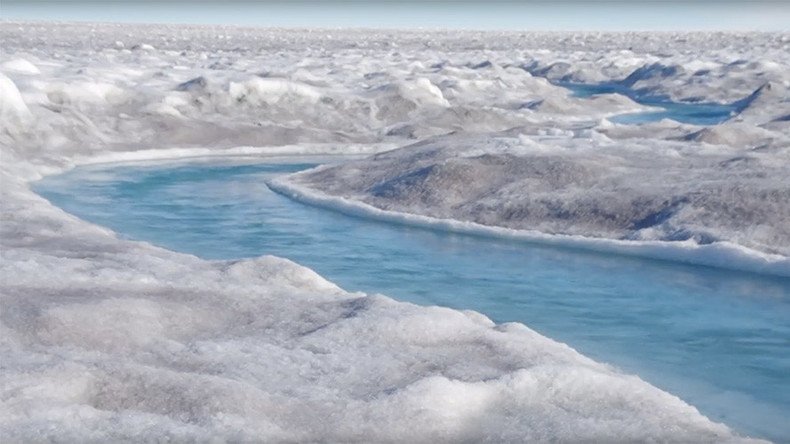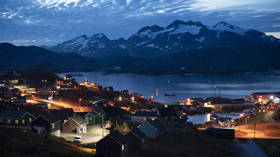‘Millions in coastal communities’ threatened by algae growth on Greenland Ice Sheet

Increased melting of the Greenland Ice Sheet has the potential to threaten millions of people in coastal cities worldwide, according to scientists studying the effect of algae on melting in the region.
The group of UK scientists say they are “very worried” as warmer conditions in the area are enabling algae to grow on the ice. The algae, which turns the ice green, brown and even black, darkens the surface and makes it more susceptible to the sun’s energy, increasing melting.
Such dark patches reflect between 1 and 35 percent meaning it melts much quicker than white ice, according to BBC News.
Got 3 minutes? Check out what we're up to with our latest film! Research funded by @NERCscience@Arctic_Officehttps://t.co/X6z036Oi6P
— Black and Bloom (@Glacier_Albedo) June 19, 2017
With Greenland the second largest ice sheet in the world and the largest in the northern hemisphere, it’s adding around 1mm a year to the global rise in sea levels. If the whole sheet was to melt, however, it could add more than seven metres to the world’s average sea level, according to the team of scientists undertaking the Black and Bloom project.
READ MORE: NASA study links Greenland ice loss to ‘gigantic invisible wave'
"People are very worried about the possibility that the ice sheet might be melting faster and faster in the future,” Professor Martyn Tranter, who is leading the study, told BBC.
"We suspect that in a warming climate these dark algae will grow over larger and larger parts of the Greenland ice sheet and it might well be that they will cause more melting and an acceleration of sea level rise.”
Dr Joe Cook, a glacial microbiologist at Sheffield University explained to BBC News that the melting of the Greenland ice sheet does not need to be total to have dangerous implications for human settlements.
Greenland ice loss aided by
— RT (@RT_com) May 28, 2017
‘gigantic invisible wave’ - NASA studyhttps://t.co/fw9aGMsJe0pic.twitter.com/lhTQN09LCc
"When we say the ice sheet is melting faster, no-one is saying it's all going to melt in the next decade or the next 100 years or even the next 1,000 years but it doesn't all have to melt for more people to be in danger – only a small amount has to melt to threaten millions in coastal communities around world,” Cook said.
The Black and Bloom project will publish its new projections for sea level rise in two years' time.












